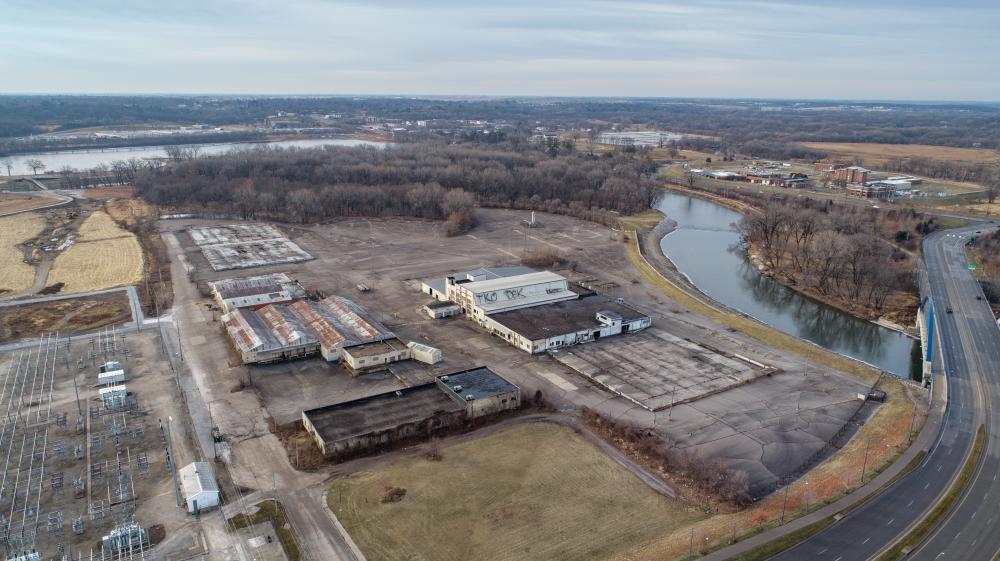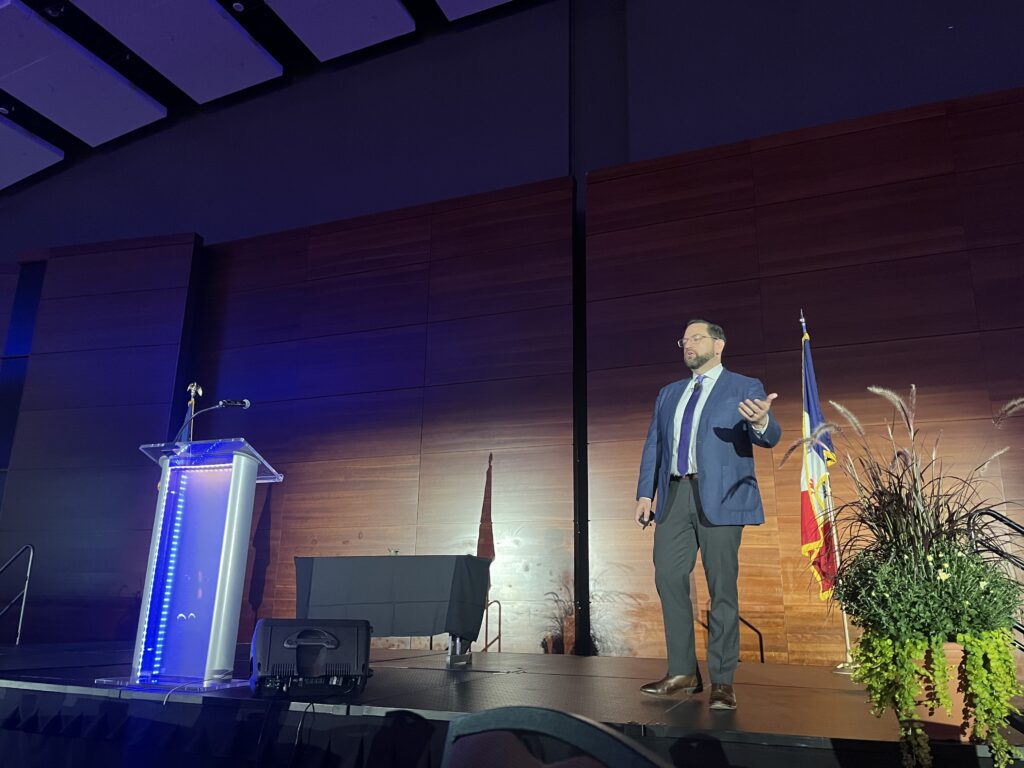Des Moines expected to take control of former Dico site this week
How the site is redeveloped depends on whether state incentives are provided

KATHY A. BOLTEN May 24, 2021 | 4:01 pm
3 min read time
695 wordsGovernment Policy and Law, Real Estate and DevelopmentThe former Dico Inc. property sits south of West Martin Luther King Jr. Parkway. Photo by Duane Tinkey
Later this week, the city of Des Moines is expected to take possession of a 43-acre site on the southwest edge of downtown that for years has been an embarrassing eyesore.
The former Dico Inc. property at 200 S.W. 16th St. is expected to be transferred to the city of Des Moines on Thursday. The contaminated site has been unused for more than 25 years as the property’s owners fought the federal government over cleanup costs and other issues.
Once the city gains ownership of the property, cleanup will begin. The site was added to the Environmental Protection Agency’s Superfund list in 1983.
How the property will be used once it has been readied for redevelopment will depend largely on whether an ambitious proposal is selected to receive state tax dollars through the Iowa Reinvestment District Act program.

Backers of the proposed project are seeking $27.1 million from the state program. The cost to construct the proposed stadium is estimated at $75 million; the plaza, $8.75 million; and the hotel, $31.5 million. Backers have said the stadium project likely would not move forward if money from the state program is not received.
Regardless of whether the proposed project is funded, getting the site cleaned is a benefit to Des Moines, City Manager Scott Sanders told the Business Record.
“There’s a huge advantage in getting the old buildings down and getting the blight out of sight,” he said. “That’s first and foremost, and it’s a win regardless of whether” the project is funded.
If the Iowa Economic Development Authority board decides to provide funding for the stadium project, “we will have an opportunity to swing that pendulum from one of the worst properties, if not the worst property, to a property that is a destination for residents and visitors.”
If the project doesn’t receive state funding, other options for the property would need to be explored, Sanders said.
“We’d have to reevaluate what options we have for the potential to still [use the property] as a community venue but without the stadium,” he said. “That has to be looked at because it is a good location to bring people together.”
Sanders said the city needs additional places to hold community events that don’t cause streets to be closed or impede customers who want to shop or go to restaurants or coffee shops.
He said the city could spearhead transforming the former Dico site into a gathering place for community events, but it wouldn’t happen overnight.
“That process would take time,” he said.
Above photo: A 6,300-seat stadium that would primarily be used for soccer is proposed to be built on 43 acres on the southwest edge of downtown Des Moines. Rendering courtesy of Krause Group
The Iowa Economic Development Authority board is expected to decide at its June 18 meeting what projects will receive funding through the state’s Iowa Reinvestment Act program, according to a board spokesperson.
Board members in late April heard pitches from supporters of six redevelopment proposals competing to use state tax revenue to pay for part of the projects.
Backers of projects located in Des Moines, Urbandale/Des Moines, Cedar Rapids, Ames, Newton and Fort Dodge requested a total of $151.6 million in new tax revenue from the state. However, just $100 million is available.
The state’s reinvestment program allows communities to use new state hotel/motel and sales tax revenue generated by new developments to be reinvested in the area in which the development is located.
The board can decide to fund all or part of a group’s funding request. Board members can also decide not to provide funding for a proposed project.
Learn more about the projects vying for funding through the state program.
–Kathy A. Bolten











